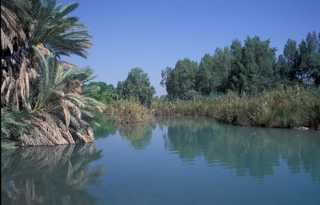 IEMed: Major survey assesses successes and failures of Euro-Med Partnership
IEMed: Major survey assesses successes and failures of Euro-Med Partnership
The Arab-Israeli conflict is a major obstacle to the Euro-Mediterranean Partnership, likely to paralyse progress in the mid- to long-term, according to major survey of experts and actors in the Partnership, Commissioned by the European Commission from the European Institute of the Mediterranean (IEMed). But while prospects on a political level are pessimistic, most respondents see the Partnership leading to a greater intensity of human exchanges and a greater understanding and respect between cultures and religions. The survey questioned 371 experts and actors from the 43 countries of the Mediterranean and the EU (the partners of the Union for the Mediterranean minus Monaco plus Libya), with three main objectives:
- To assess progress, achievements and shortcomings in the different areas of the Euro-Mediterranean Partnership in the perception of experts and actors;
- To create and develop an instrument for analysis and mobilization of actors, experts and policy-makers working on Euro-Mediterranean relations;
- To identify the major Mediterranean trends with a forward-looking approach and articulate policy proposals to cope with the major challenges the region is bound to face in the coming years.
It terms of obstacles, the survey found a wide consensus on the difficulties posed by the Middle East conflict, with 73% saying it seriously endangered the Partnership. The two other obstacles most often mentioned are the weak political will for reform in Mediterranean Partner Countries (43% of respondents) and the lack of South-South integration (43%).
The survey also pointed to the problem of understanding of the Partnership: "14 years after its inception, the Euro-Mediterranean Partnership is diversifying into a set of differentiated thematic processes which are difficult to grasp even for experts and actors selected for the Survey," the report said, pointing to the high percentage of "Don't know" answers for many questions seeking a detailed assessment of concrete instruments or progress. In many respects, it added however, this diversification was "a sign of the Euro-Mediterranean Partnership migrating from the realm of diplomats and generalist civil society actors to the remit of specialized ministerial experts and civil society organizations and even interest groups."
Indeed, a more detailed analysis of the Partnership by priority areas, reveals a relatively high appreciation of action in the cultural and education fields and the people-to-people programmes, but also that respondents consider that the Euro-Mediterranean Partnership is mainly benefiting the business climate and economic interests, but without this translating into job creation, women's integration into economic life or a convergence towards EU income levels. According to a synthesis of results, the Survey offers a clear picture of what has worked and what has not in the Euro-Mediterranean Partnership.
Successes:
- Business climate
- Multilateral programmes in the economic field (role of FEMIP and Medibtikar and Invest in Med Programmes)
- Increasing the awareness and understanding of the different cultures and civilizations
- Educational, cultural, youth and research exchanges (Euromed Heritage, Anna Lindh Foundation, Regional Information and Communication Programme, Euromed Youth, Gender Equality Programme)
- Programme on the Role of Women in Economic Life
- Enabling citizens to participate in decision-making at local level
- Sustainable development
- Strengthening financial cooperation
- South-South regional economic integration
- Reducing disparities in education achievement
- Cooperation in migration, justice and security
- Facilitating mobility and managing migration
- Conflict resolution in the region (62% of respondents)
- Promotion of democracy and political pluralism (49%)
- Water access and sustainability (41.5%)
- Education (41%)
| Contact information | n/a |
|---|---|
| News type | Inbrief |
| File link |
http://www.iemed.org/activitats/2010/euromedsurvey/aeuromedsurvey.php |
| Source of information | ENPI Info Centre |
| Keyword(s) | ENPI |
| Subject(s) | AGRICULTURE , ANALYSIS AND TESTS , CHARACTERISTICAL PARAMETERS OF WATERS AND SLUDGES , DRINKING WATER , DRINKING WATER AND SANITATION : COMMON PROCESSES OF PURIFICATION AND TREATMENT , ENERGY , FINANCE-ECONOMY , HEALTH - HYGIENE - PATHOGENIC MICROORGANISM , HYDRAULICS - HYDROLOGY , INDUSTRY , INFORMATION - COMPUTER SCIENCES , INFRASTRUCTURES , MEASUREMENTS AND INSTRUMENTATION , METHTODOLOGY - STATISTICS - DECISION AID , NATURAL MEDIUM , POLICY-WATER POLICY AND WATER MANAGEMENT , PREVENTION AND NUISANCES POLLUTION , RIGHT , RISKS AND CLIMATOLOGY , SANITATION -STRICT PURIFICATION PROCESSES , SLUDGES , TOOL TERMS , TOURISM - SPORT - HOBBIES , WATER DEMAND , WATER QUALITY |
| Relation | http://www.iemed.org/aindex.php |
| Geographical coverage | Euromed |
| News date | 04/06/2010 |
| Working language(s) | ENGLISH |
 you are not logged in
you are not logged in





